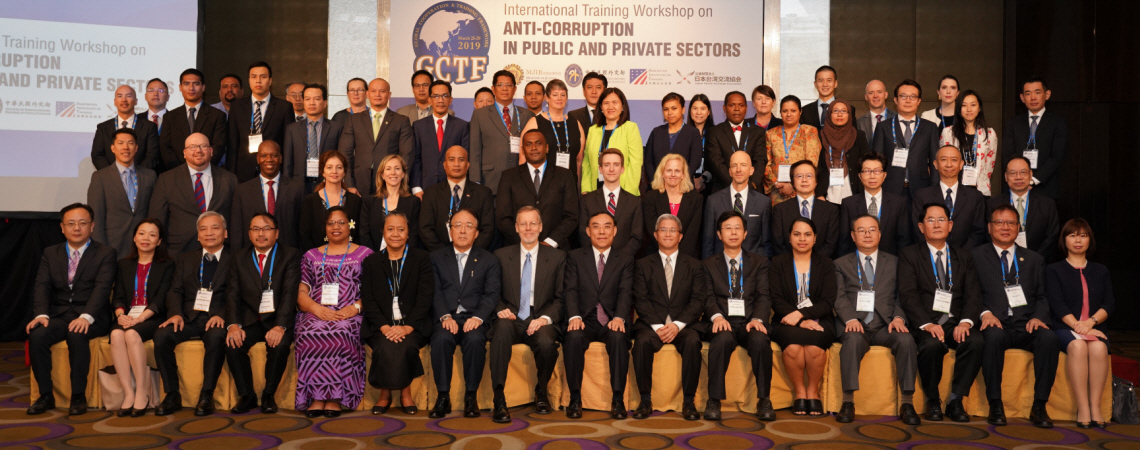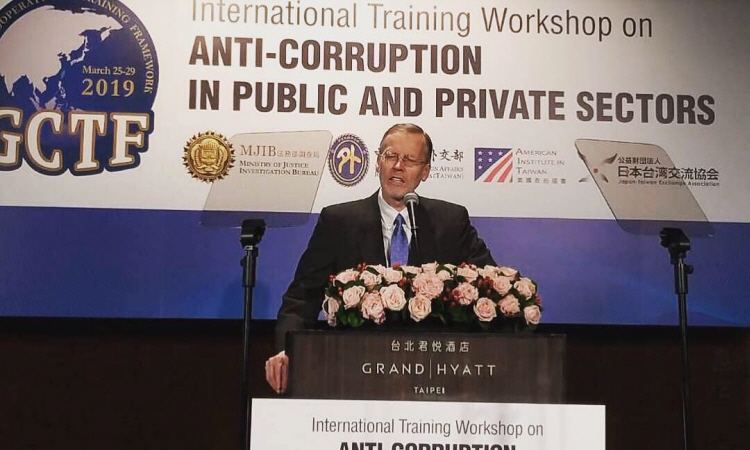
March 26, 2019
AIT Official Text #: OT-1912
Remarks by AIT Director Brent Christensen
at GCTF International Workshop on Anti-Corruption in Public and Private Sectors
March 26, 2019
(As Prepared for Delivery)
Minister of Justice Tsai, Ministry of Justice Investigation Bureau Director General Leu, Deputy Foreign Minister Hsu, Japan-Taiwan Exchange Association Chief Representative Numata, and esteemed participants of this workshop. Good morning!
I am honored to be speaking at the opening ceremony of this workshop, which is held under the Global Cooperation and Training Framework, or GCTF. The GCTF is one of the best examples of U.S.-Taiwan cooperation, and something we take great pride in. The framework allows Taiwan to showcase its strengths, and share its expertise with countries around the world on how to tackle common challenges.
A common challenge we all face is corruption. In the public sector, blatant attempts to use public office for private gain or dishonest efforts to meddle in elections erodes the public trust and undermines the integrity of public institutions. In the private sector, corruption saps economic growth and hinders innovation and development. Tackling corruption should be a shared challenge for all of us. None of our communities are immune to corruption and the scourge of it destabilizes the foundation that enables our societies to thrive and our institutions to act transparently and accountably.
As many of you know, this year AIT celebrates the 40th anniversary of the Taiwan Relations Act and we have planned a series of events throughout the year focusing on different aspects of our partnership. To highlight the multi-faceted nature of our relationship, we have chosen a theme for each month, and March is Shared Values Month. Shared values are one of the strongest ties that binds Taiwan and the United States together. Those shared values include a collection of democratic values: the idea that everyone is equal before the law, no matter what position they hold; a commitment to make our institutions as transparent as possible; and the belief that our leaders derive their power from the people, and not the other way around.
For this reason, this GCTF is the perfect event to showcase our shared values. It is also an opportunity to remind ourselves that democracies are not perfect, but must constantly strive for self-improvement.
Good governance is also one of the three pillars of the U.S. vision for a free and open Indo-Pacific. We are committed to working with Indo-Pacific partners to create the conditions needed to unlock greater private investment, combat corruption, and ensure they remain free from foreign coercion.
We are extremely fortunate to have a regional leader in Taiwan – a mature democracy not only dedicated to countering corruption, but willing to share its expertise with partners to make the Indo-Pacific region more resistant to the dangers of corruption. This workshop is a clear manifestation of that leadership, bolstered by the expertise of trainers from Japan, Malaysia, and the U.S. Department of Justice and Federal Bureau of Investigation. To the participants, your participation in this important workshop is a clear demonstration of your commitment to make your respective societies and institutions stronger.
On behalf of the American Institute in Taiwan, I would like to reiterate my sincere thanks to the Taiwan authorities for its leadership in regional anti-corruption efforts. I would also like to express my admiration to all the participants for your resolve in pursuit of this common goal. I hope that over the next few days we will collectively share the best practices that will help prevent corruption from taking root. Moreover, I hope that at the conclusion of this workshop we will leave with a stronger law enforcement network across borders to better cooperate, share information, and develop tools to address the shared challenge of corruption together.
Thank you.
















![Video Thumbnail [Recovered]-01](../wp-content/uploads/sites/269/Video-Thumbnail-Recovered-01-1-750x450.jpg)





